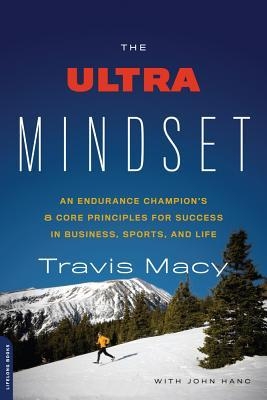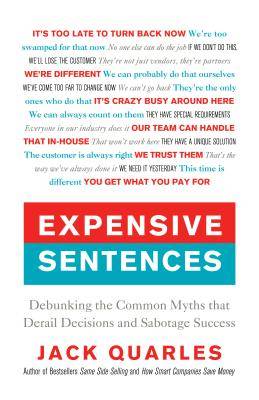
“The Ultra Mindset – An Endurance Champion’s 8 Core Principles for Success in Business, Sports and Life” by Travis Macy with John Hanc (DaCapo, $21).
You need extreme focus and mental toughness to challenge yourself and deal with adversity. Macy’s experiences, which include unning marathons in Death Valley and Antarctica, climbing the French Alps and rappelling into caverns in Asia, helped him develop and hone a success mindset.
Whether you own or run a business, or are climbing a corporate ladder, his “8 Core Principles” spark inspiration:
1. “It’s all good mental training.” How you feel drives how you function. Physical exercise stimulates brain regions involved with mental acuity. It also contributes to brain health by helping maintain healthy blood pressure and weight, improving energy and lowering stress and anxiety. It keeps the heart healthy, too. If you’re not exercising, start. If you are, change your routine by varying exercises and increasing resistance.
2. “Be a wannabe.” Identify high-achievement role models. Define why you wannabe like them. Figure out what you can do to emulate them by staying in touch and picking their brains. You’ll find that they’ve had their ups and downs — and they responded to the downs by committing to getting better “the next time.”
3. “Find your carrot.” Motivation makes things happen. Many people focus on intrinsic motivation (i.e. doing something that we find enjoyable or interesting). They all too often ignore extrinsic motivation (i.e. doing something that leads to a specific outcome) — especially when things don’t go as planned.
Identify three things you’d like to accomplish. For each of these, complete these three comments: “I am motivated intrinsically because … But I can tell when intrinsic motivation is tiring when … When that happens, I could utilize extrinsic motivators by telling myself … ”
4. “Have an ego and use it — until it’s time to put your ego aside.” You have to believe in yourself. Ego, as Macy defines it, means creating accomplishment through careful, yet adaptable, planning and a healthy dose of grit. Humility plays a role is the definition, too, because no one succeeds alone.
5. “Think about your thinking: What and why.” Employ what thinking on detail-oriented, important tasks, and why thinking on the mundane stuff (like paperwork). The why may relate to getting it done so you can get back to the important stuff. Macy points out that both what and why may exist within important tasks because details can become boring.
6. “The 4:30 a.m. rule: When you have no choice, anything is possible.” By committing to timetables and deadlines, you create a commitment clock, which becomes your action-now, accountability clock. “You don’t worry about whether or not you actually feel like taking action when it’s time to spring into action.”
7. “Bad stories, good stories: The ones you tell yourself make all the difference.” Negative thoughts produce inaction. There’s always an upside when you’re upside down. To regain the upside quickly, flip the script on what happened by making it into a learning experience. This gives you a new goal, which needs a new plan for achieving it.
8. “Never quit … except when you should quit.” If you are doing something with your life that you don’t want to do, then quit, and replace it with something you do want to do. In a sense, that isn’t really quitting. Rather, it involves reevaluating where you are versus where you want to be. The reevaluation should be done by reviewing Principles 1 through 7.
Key takeaway: Make yourself uncomfortable. A comfort zone quickly becomes a danger zone in which routine becomes your enemy.
Jim Pawlak is a nationally syndicated reviewer of business books.






